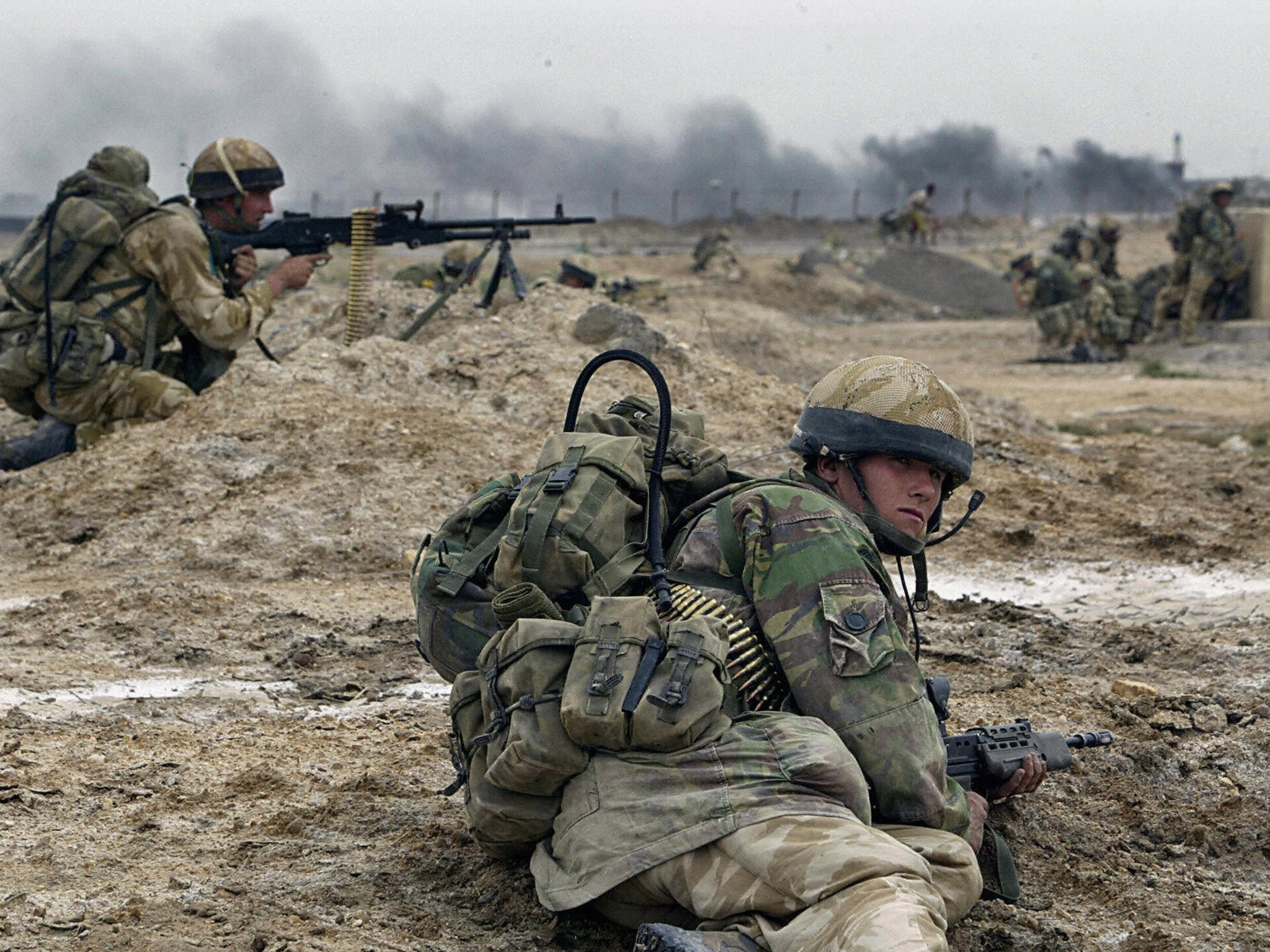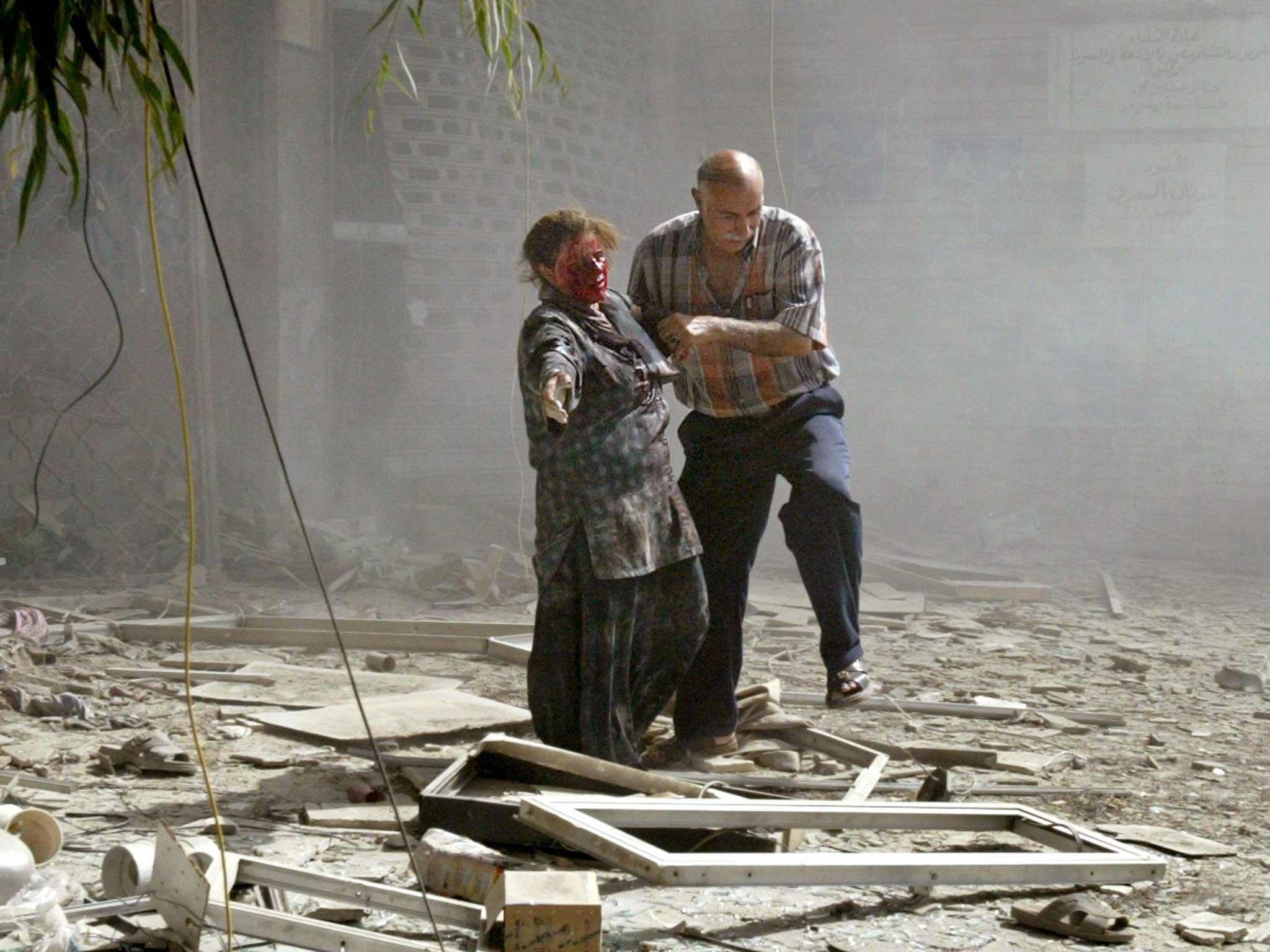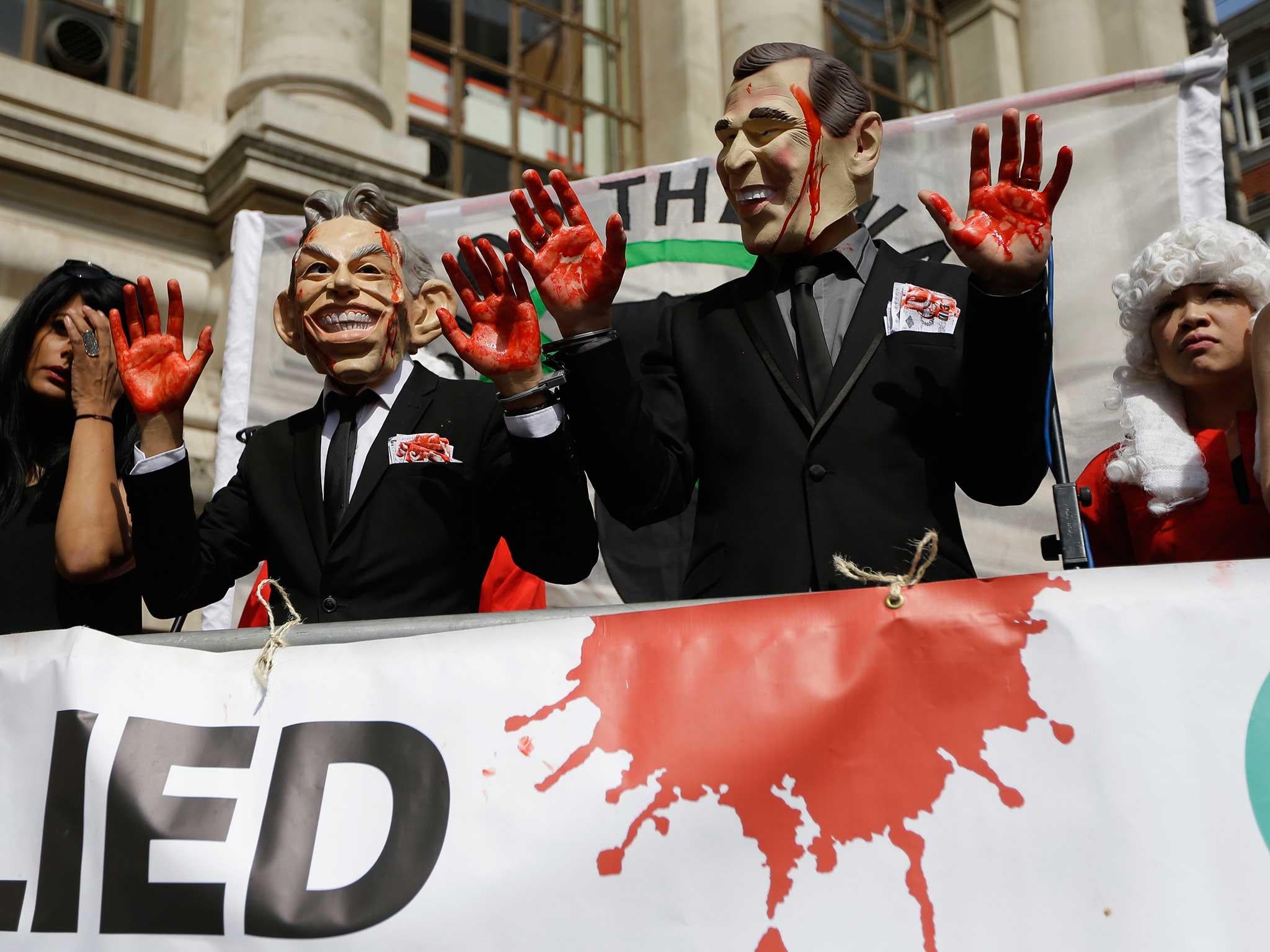'My family would gather in one room, waiting for death': An Iraqi woman's story of life in Baghdad during the war
Exclusive: An Iraqi woman tells The Independent how her hope turned to despair

An Iraqi woman who lived in Baghdad through the entire Iraq War has described her family’s hope turning to horror as the city descended into chaos.
The woman, who can only be identified as NM because of fears for her safety, was a 24-year-old student when American and British forces launched their invasion in March 2003.
Two days after she handed in her master’s thesis, “Operation Iraqi Freedom” started and thousands of troops entered the country to topple Saddam Hussein.
While most of Baghdad’s civilians fled the capital, NM’s family decided to stay in their home expecting a short air campaign like the one they withstood in the Gulf War.

“We just thought it was going to be a few exchanges of bombing – we never expected it was going to be that massive and that Saddam was going to be overthrown,” she told The Independent.
“But then my father turned on the news and we watched one of the statements from the minister of culture and communications and he was shaking and shivering.
“He was so scared, you could see it on his face. We knew the army was collapsing.”
Days later the electricity was cut, leaving the family struggling to get news from the outside world, but there were soon warnings of coalition forces moving towards Baghdad from the south-east – towards the al-Zafraniya district where they lived.
“I could see the planes coming above our house,” NM recalled.
“The air raids were the worst – we heard all the bombing at night and you would wake up in the morning and it carried on.
“When the sirens started, all the family would gather in one room, waiting for death.
“All Iraqi families do the same – if we are going to die, we will die together.”
With rumours of advancing troops raping and killing civilians, NM’s parents fled with their six daughters and three sons into the countryside in neighbouring Diyala province.
They lived in tents with dozens of other families, sheltering in an orchard with no water or electricity until news came on 9 April that Baghdad had fallen.
“The message was to go back home so we went,” NM said. “When we entered Baghdad we saw coalition forces on checkpoints.
“They were fine, they were just standing there greeting people and directing them, but we knew our country was now occupied.”
She described her family’s happiness at the removal of Saddam and their short-lived hopes for a new and democratic Iraq.
“It was a dream, we never thought it would happen,” NM said. “We had reached a point where everyone thought he was invincible.”
But within days of the dictator’s downfall her optimism started fading as looting and violence swept through the city, and relations between Iraqi civilians and coalition forces soured.
“We saw the coalition forces riding through our streets like cowboys,” NM said.

“If one bullet was shot towards them they would open fire at everyone, Iraqis were dying every day.
“One day after the fall of Baghdad we discovered the truth – that they did not come to save Iraq, they were destroying it.
“We knew they had an agenda, and that agenda was oil.”
She said her faith in the occupiers was destroyed by the interim leaders installed in the Coalition Provisional Authority, many of whom lived in the UK and US for several years, and the catastrophic ruling to ban members of Saddam’s Ba’ath party from public office and education.
NM had herself been urged to join the party, with membership considered compulsory for advancement, and saw her friends and colleagues among thousands of civil servants, politicians, teachers and doctors removed from their posts.
“Everyone was a member, you didn’t have to believe in Saddam Hussein, but they banned everyone,” she said. “I knew good teachers, good people who lost their livelihoods.”
As unemployment spiked, crime and disorder spread amid increasing sectarianism that boiled over into virtual civil war.
“In June 2003 my favourite professor was killed,” NM said. “He was an Armenian Christian, he was loved and respected by everyone.
“It was lawless, anyone who had a problem with anyone just went and killed them.
“We started to see black flags on the walls – sometimes they would say what people were killed for.”

The jihadist symbols signalled the rise of groups including Abu Musab al-Zarqawi’s al-Qaeda in Iraq, which would later go through a series of mergers and splits to become Isis.
In the predominantly Shia neighbourhood where NM lived, military checkpoints sprung up but they were not enough to stop bombings at the local market, terror attacks and executions.
In 2007, NM and her mother left their home to see two bodies hanging from electricity poles.
“My mum said ‘don’t look up’,” she recalled. “We still don’t know who they were.”
Sir John Chilcot’s damning report into Britain’s role in the Iraq War found that at least 150,000 Iraqis died in the conflict and more than a million were displaced.
But the Iraq Body Count project puts the death toll since 2003 at 251,000, including 179,000 civilians who died in aerial bombardment, IED explosions, suicide bombings, executions and murders – almost half in Baghdad.
The group attributes 9,270 deaths solely to US-led forces in the first two years of the conflict, but the vast majority to the lawlessness and insurgency they failed to prevent.
The seven-year Iraq Inquiry found that Tony Blair had been warned of the risk of sectarian fighting, insurgency and the rise of terror groups including al-Qaeda before the invasion but went ahead with “inadequate” planning and resources to maintain order.

In a damning set of findings, Sir John found that the UK failed to respond to the deteriorating security situation in Baghdad and south-eastern Iraq and did not a have the resources or strategy to protect civilians.
NM said she was angry and disappointed that there was no official call for Mr Blair to face prosecution.
“This is how the worth of Iraqis is measured?” she said. “I hoped that Blair would be held to account and will be on trial not just for going to war in Iraq but the injustice to the Iraqi people.”
Throughout the death and chaos, NM managed to complete a PhD and went on to become an academic.
But even her university was not safe from the violence and persecution and she was forced to flee Iraq last year after receiving death threats from a Shia militia.
Now she lives in the UK, desperately following news of the so-called Islamic State’s almost daily bombings and contacting her family to check they are safe.
“Saddam was a tyrant but we were all Iraqis and we had a common enemy, but now you are a Sunni or a Shia or a Kurd or an Arab,” NM said.
“They have overthrown one Saddam and now we have lots of Saddams. Iraq has gone from bad to worse.”
Join our commenting forum
Join thought-provoking conversations, follow other Independent readers and see their replies
Comments
Bookmark popover
Removed from bookmarks